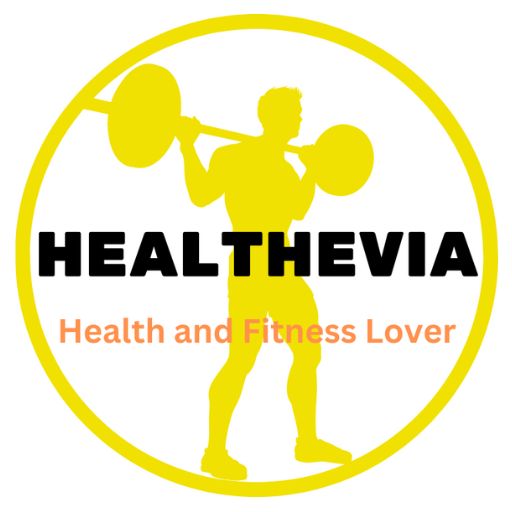Discover effective supplements to lower cortisol levels naturally. Learn about vitamins, herbs, and minerals for stress reduction.
In today’s fast-paced world, managing stress is more important than ever. Many people are looking for effective ways to lower cortisol, the body’s primary stress hormone. Elevated cortisol levels can lead to a range of health issues, including weight gain, sleep problems, and weakened immune function.
If you’re feeling overwhelmed and are searching for natural methods to reduce stress, you might wonder: what supplements lower cortisol?
Understanding how to manage cortisol is key to maintaining overall health and well-being. Various supplements, including adaptogenic herbs like ashwagandha and Rhodiola rosea, essential vitamins like Vitamin C, and minerals such as magnesium, have been shown to help regulate cortisol levels.
These supplements work by supporting adrenal function, reducing inflammation, and promoting a sense of calm.
In this article, we will explore the best cortisol-lowering supplements backed by scientific research.
We will delve into how these natural remedies can help you achieve hormonal balance and improve your overall quality of life.
Whether you’re dealing with chronic stress, looking to enhance your mental clarity, or simply aiming to support your body’s natural stress response, this guide will provide you with valuable insights and practical advice.
So, if you’re ready to take control of your stress and support your health naturally, read on to discover which supplements can help you lower cortisol and find balance in your daily life.
Understanding Cortisol and Its Impact on Health

Cortisol, often referred to as the “stress hormone,” is produced by the adrenal glands and plays a crucial role in the body’s response to stress.
This hormone is essential for various bodily functions, including regulating metabolism, maintaining blood sugar levels, and controlling inflammation.
When you face a stressful situation, cortisol levels spike, providing the energy and alertness needed to handle the challenge.
However, when stress becomes chronic, cortisol levels can remain elevated for prolonged periods, which can negatively impact your health.
Persistently high cortisol can lead to a range of issues. One of the most noticeable effects is weight gain, particularly around the abdomen. This type of weight gain is not only a cosmetic concern but also increases the risk of serious health conditions like type 2 diabetes and cardiovascular disease.
Another significant consequence of elevated cortisol is sleep disturbances. High cortisol levels can interfere with your natural sleep-wake cycle, making it difficult to fall asleep or stay asleep.
Poor sleep quality, in turn, can exacerbate stress and further elevate cortisol levels, creating a vicious cycle that can be hard to break.
Additionally, chronic high cortisol can weaken the immune system, making you more susceptible to infections and illnesses.
This is because cortisol can suppress the effectiveness of the immune response, reducing the body’s ability to fight off pathogens. Over time, this can lead to increased frequency and severity of illnesses.
Furthermore, elevated cortisol can affect your mood and cognitive function. It can lead to feelings of anxiety, depression, and irritability. Cognitive issues, such as difficulty concentrating and memory problems, are also common when cortisol levels are high for extended periods. These mental health effects can significantly impact daily life and overall well-being.
Understanding the impact of cortisol on health is essential for managing stress effectively. By being aware of how chronic stress and elevated cortisol can affect your body, you can take proactive steps to address these issues.
Incorporating natural cortisol-lowering supplements and other stress management strategies can help mitigate these effects and promote better health.
Natural Cortisol Reducers: Adaptogenic Herbs

Adaptogenic herbs are natural substances that help the body adapt to stress and normalize its functions. These herbs have been used for centuries in traditional medicine to support health and well-being.
Ashwagandha

Research has shown that ashwagandha can significantly reduce cortisol levels, helping to improve stress resistance and promote a sense of calm. By supporting adrenal health, ashwagandha helps the body maintain balance during stressful times.
Rhodiola Rosea

Another powerful adaptogen is Rhodiola rosea, which is known for its ability to combat fatigue and enhance mental performance. Studies suggest that Rhodiola rosea can help lower cortisol levels, thereby improving the body’s resilience to stress.
This herb is particularly beneficial for those experiencing chronic stress or burnout, as it supports both physical and mental endurance.
Basil

Holy basil, also known as tulsi, is another adaptogen that has been shown to lower cortisol levels. This herb not only helps reduce stress but also supports overall health by providing antioxidant and anti-inflammatory benefits.
Regular consumption of holy basil can promote a balanced stress response and improve mood.
Licorice Root

Licorice root is an adaptogenic herb that supports adrenal function and helps regulate cortisol levels. It contains compounds that can prolong the action of cortisol, making it particularly useful in cases where cortisol levels are too low due to adrenal fatigue.
However, it’s important to use licorice root under the guidance of a healthcare professional, as it can affect blood pressure and potassium levels.
Siberian Ginseng

Siberian ginseng, also known as eleuthero, is another adaptogen that helps the body manage stress. It has been found to reduce the severity of stress responses by regulating cortisol production.
This herb can improve energy levels, enhance mental clarity, and support overall well-being, making it a valuable addition to a stress-reducing regimen.
These adaptogenic herbs offer a natural way to manage cortisol levels and support the body’s stress response. Incorporating them into your daily routine can help you cope better with stress, improve your mood, and maintain overall health.
Always consult with a healthcare provider before starting any new supplement, especially if you have underlying health conditions or are taking other medications.
Vitamins and Minerals for Cortisol Management

Vitamins and minerals play a critical role in maintaining hormonal balance and supporting the body’s stress response.
Vitamin C

Vitamin C is particularly important for adrenal health. The adrenal glands, which produce cortisol, require a significant amount of Vitamin C to function properly. During times of stress, the body uses up Vitamin C rapidly, making it essential to ensure adequate intake.
Studies have shown that Vitamin C supplementation can lower cortisol levels, helping to alleviate the physical effects of stress. Additionally, Vitamin C supports the immune system, which can be compromised by high cortisol levels.
Magnesium

Magnesium is another vital mineral that is essential for cortisol management. It is involved in over 300 biochemical reactions in the body, including those that regulate stress responses. Magnesium helps to calm the nervous system and promote relaxation, counteracting the stimulatory effects of cortisol.
Many people are deficient in magnesium, particularly those who are under chronic stress, making supplementation a beneficial strategy. Increasing magnesium intake through diet or supplements can help reduce cortisol levels and improve sleep quality, further supporting overall stress management.
B vitamins

B vitamins, particularly B5 (pantothenic acid) and B6 (pyridoxine), are also crucial for adrenal function and cortisol regulation. Vitamin B5 is essential for the synthesis of coenzyme A, which is involved in the production of cortisol.
Adequate levels of Vitamin B5 ensure that the adrenal glands function optimally, preventing excessive cortisol production. Vitamin B6, on the other hand, supports the conversion of tryptophan to serotonin, a neurotransmitter that helps regulate mood and stress. Ensuring sufficient intake of B vitamins can help maintain hormonal balance and support the body’s stress response.
Zinc

Zinc is another mineral that plays a role in cortisol regulation. It is essential for immune function and has been shown to modulate the body’s response to stress. Zinc deficiency can lead to increased cortisol levels and impaired adrenal function. Supplementing with zinc can help restore balance, supporting both immune health and stress resilience.
Omega-3 Fatty Acids

Omega-3 fatty acids, found in fish oil and certain plant oils, also contribute to cortisol management. These essential fats have anti-inflammatory properties and can reduce the production of stress-related hormones.
Regular intake of omega-3 supplements has been shown to lower cortisol levels, improve mood, and enhance cognitive function. Incorporating omega-3 rich foods or supplements into your diet can provide comprehensive support for stress management and overall well-being.
Omega-3 Fatty Acids and Cortisol Control

Omega-3 fatty acids, found in fish oil and certain plant oils like flaxseed oil and chia seed oil, are renowned for their health benefits, particularly their ability to lower cortisol levels.
Cortisol is a stress hormone that, when elevated chronically, can lead to various health issues. Omega-3s work by reducing inflammation throughout the body, including in the brain, which can help to lower cortisol levels and mitigate the effects of stress.
Research has consistently shown that omega-3 fatty acids can improve mood and emotional well-being. They do this by supporting the production of neurotransmitters like serotonin, which play a crucial role in regulating mood. By improving serotonin levels, omega-3s can help to counteract the negative effects of stress and promote a sense of calm and well-being.
Omega-3 fatty acids also support cognitive function and mental clarity, which can be compromised by chronic stress and elevated cortisol levels. Regular intake of omega-3 supplements has been linked to improvements in cognitive performance, including memory and concentration.
This makes omega-3s a valuable addition to any stress-reducing regimen, as they support overall mental health and resilience.
In addition to their effects on mood and cognitive function, omega-3 fatty acids have been shown to have cardiovascular benefits. They can help to reduce blood pressure, lower triglyceride levels, and improve overall heart health.
Since chronic stress can contribute to cardiovascular problems, incorporating omega-3s into your diet or supplement routine can provide comprehensive support for both stress management and cardiovascular health.
It’s important to note that omega-3 fatty acids are considered essential fats, meaning that the body cannot produce them on its own and must obtain them from the diet.
Fatty fish like salmon, mackerel, and sardines are excellent sources of omega-3s, as are plant sources like flaxseeds, chia seeds, and walnuts. However, for those who do not consume enough of these foods regularly, omega-3 supplements can be a convenient and effective way to ensure adequate intake.
Overall, omega-3 fatty acids offer a natural and effective approach to controlling cortisol levels and supporting stress management. By incorporating omega-3-rich foods or supplements into your daily routine, you can help to maintain hormonal balance, improve mood, enhance cognitive function, and support overall mental and physical well-being.
As always, consult with a healthcare provider before starting any new supplement regimen to ensure it is appropriate for your individual health needs.
The Role of Phosphatidylserine in Stress Reduction

Phosphatidylserine is a phospholipid that is vital for the structure and function of cells, particularly in the brain. It is found in high concentrations in cell membranes, where it helps maintain their integrity and fluidity. Beyond its structural role, phosphatidylserine has been extensively studied for its ability to modulate the body’s response to stress.
Research suggests that phosphatidylserine supplementation can help reduce cortisol levels, especially after periods of physical exertion such as exercise. Exercise can temporarily elevate cortisol levels, and phosphatidylserine has been shown to aid in the recovery of these levels to normal. By supporting a healthy cortisol response, phosphatidylserine may help reduce the negative impact of stress on the body.
Phosphatidylserine is also known for its cognitive benefits, particularly under stressful conditions. It has been shown to enhance cognitive function, including memory and concentration, especially in individuals facing stress-related cognitive decline. By supporting brain health and function, phosphatidylserine may improve mental clarity and overall cognitive performance during stressful situations.
Additionally, phosphatidylserine has antioxidant properties that can help protect cells from oxidative stress. Oxidative stress is a common consequence of chronic stress and can contribute to cellular damage and aging. By reducing oxidative stress, phosphatidylserine may help mitigate some of the negative effects of chronic stress on the body.
Supplementing with phosphatidylserine can support both mental and physical performance by enhancing the body’s response to stress. Whether you’re looking to improve your cognitive function under stress or recover more effectively from physical exertion, phosphatidylserine offers a natural and effective solution.
As with any supplement, it’s essential to consult with a healthcare provider before starting phosphatidylserine supplementation, especially if you have any underlying health conditions or are taking medications.
Negative impacts of chronically high cortisol levels
Here are the negative impacts of chronically high cortisol levels explained in bullet points:
Especially around the abdomen (“belly fat”), which is linked to increased risk of metabolic disorders like type 2 diabetes and cardiovascular disease.
Including difficulty falling asleep, staying asleep, or achieving restful sleep, which can further exacerbate stress.
Making individuals more susceptible to infections and illnesses due to suppressed immune function.
Such as stomach ulcers, irritable bowel syndrome (IBS), and other gastrointestinal problems.
Including difficulty concentrating, memory problems, and decreased mental clarity.
Such as anxiety, depression, irritability, and mood swings.
Elevated cortisol levels can contribute to hypertension and increase the risk of heart disease.
Cortisol interferes with the production of new bone tissue, potentially leading to osteoporosis over time.
Cortisol can break down muscle tissue for energy, which can lead to muscle weakness and decreased muscle mass.
Such as acne, eczema, and other inflammatory skin conditions due to cortisol’s impact on inflammation levels.
Symptoms and health risks associated with high cortisol
Here are the symptoms and health risks associated with high cortisol levels, explained in bullet points:
Symptoms
- Weight Gain: Especially around the abdomen ("belly fat").
- Sleep Disturbances: Difficulty falling asleep, staying asleep, or achieving restful sleep.
- Fatigue: Feeling tired even after a full night's sleep.
- Muscle Weakness: Especially in the arms and legs.
- Increased Thirst and Urination: Due to cortisol's impact on fluid balance.
- Increased Hunger: Especially for unhealthy foods.
- Mood Changes: Such as irritability, anxiety, or depression.
- Cognitive Difficulties: Trouble concentrating or remembering things.
- Digestive Issues: Such as bloating, gas, or indigestion.
- Headaches: Often tension-type headaches.
Health Risks
- Metabolic Disorders: Including insulin resistance, leading to higher blood sugar levels and an increased risk of type 2 diabetes.
- Cardiovascular Issues: Such as hypertension (high blood pressure) and an increased risk of heart disease.
- Immune System Suppression: Making it easier to get sick and slower to recover from illness.
- Bone Loss: Increased risk of osteoporosis due to decreased bone formation.
- Muscle Loss: Especially in the arms and legs.
- Skin Problems: Such as acne or other skin conditions due to increased inflammation.
- Reproductive Issues: Including menstrual cycle irregularities and fertility problems.
- Slowed Healing: Wounds may take longer to heal due to impaired immune function.
- Mental Health Issues: Such as increased anxiety, depression, or mood swings.
- Chronic Fatigue Syndrome: Persistent tiredness that doesn't improve with rest.
Managing stress and cortisol levels is crucial for maintaining overall health and well-being. If you suspect you may have high cortisol levels or are experiencing these symptoms, it’s important to consult with a healthcare professional for proper diagnosis and treatment.
Natural Ways to Lower Cortisol
- Engage in regular physical activity, such as walking, jogging, yoga, or swimming.
- Exercise helps to reduce cortisol levels and improve mood.
- Practice mindfulness meditation or deep breathing exercises.
- These techniques can help reduce stress and lower cortisol levels.
- Aim for 7-9 hours of quality sleep per night.
- Poor sleep can elevate cortisol levels, so prioritize good sleep hygiene.
- Eat a balanced diet rich in fruits, vegetables, whole grains, and lean proteins.
- Avoid sugary foods and excess caffeine, which can increase cortisol levels.
- Reduce consumption of caffeine, especially in the afternoon and evening.
- High caffeine intake can contribute to elevated cortisol levels.
- Identify stress triggers and develop healthy coping mechanisms.
- Practice relaxation techniques such as yoga, tai chi, or progressive muscle relaxation.
- Maintain strong social connections with friends and family.
- Social support can help buffer against the negative effects of stress and lower cortisol levels.
- Consider adaptogenic herbs such as ashwagandha, Rhodiola rosea, and holy basil.
- These herbs can help the body adapt to stress and lower cortisol levels naturally.
- Include foods rich in omega-3s, such as fatty fish (salmon, mackerel), flaxseeds, and walnuts.
- Omega-3 fatty acids can help reduce inflammation and lower cortisol levels.
Avoid excessive alcohol consumption, which can elevate cortisol levels and interfere with sleep.
- Schedule regular relaxation time and hobbies that you enjoy.
- Doing activities that you find relaxing can help reduce stress and lower cortisol levels.
- Engage in activities that make you laugh and bring joy.
- Laughter and enjoyment can reduce cortisol levels and improve mood.
Considerations When Using Supplements

Before starting any new supplement regimen, consult with a healthcare provider, especially if you have pre-existing health conditions or are taking medications.
- Choose supplements from reputable brands that adhere to good manufacturing practices (GMP).
- Look for third-party certifications (e.g., USP, NSF) to ensure quality and safety.
- Follow the recommended dosage instructions provided on the supplement label.
- Pay attention to the timing of supplements, as some may be more effective when taken with food or at specific times of the day.
- Be aware of potential interactions between supplements and medications or other supplements.
- Certain supplements may interfere with medications or have additive effects.
- Consider your individual health needs, allergies, and sensitivities when choosing supplements.
- Some supplements may not be suitable for everyone, such as those with certain medical conditions or allergies.
- Monitor how your body responds to supplements and be prepared to adjust dosage or discontinue use if necessary.
- Keep track of any changes in symptoms or side effects.
- Consider the long-term use of supplements and their sustainability.
- Some supplements may be intended for short-term use or periodic supplementation rather than continuous use.
- Be cautious when combining multiple supplements (stacking), as this may increase the risk of side effects or interactions.
- Consider consulting with a healthcare provider or nutritionist to develop a safe and effective supplement regimen.
- Store supplements according to the manufacturer’s instructions to maintain potency and freshness.
- Check expiry dates and discard supplements that have expired or show signs of deterioration.
- If you experience any adverse reactions or side effects from supplements, report them to your healthcare provider.
- Discontinue use and seek medical advice if necessary.
Potential Side Effects of Supplements
Digestive Issues
Some supplements, particularly those high in fiber or certain minerals, may cause digestive upset, such as diarrhea, constipation, or bloating.
Allergic Reactions
Allergies to ingredients in supplements, such as herbs or additives, can cause symptoms like rash, itching, swelling, or difficulty breathing.
Nausea and Vomiting
Certain supplements may cause nausea or vomiting, especially when taken on an empty stomach or in high doses.
Headaches
Some people may experience headaches as a side effect of certain supplements, especially those that affect blood flow or blood sugar levels.
Fatigue or Insomnia
Supplements that affect energy levels or sleep patterns may cause fatigue or insomnia in some individuals.
Liver or Kidney Damage
High doses of certain vitamins or minerals can potentially cause liver or kidney damage, especially with prolonged use.
Interactions with Other Medications
Blood Thinners (Anticoagulants)
Supplements like fish oil, garlic, ginkgo biloba, and vitamin E can increase the risk of bleeding when taken with blood thinners.
Diabetes Medications
Supplements like cinnamon, chromium, and ginseng can lower blood sugar levels, which may require adjustments in diabetes medications.
Blood Pressure Medications
Supplements like coenzyme Q10, garlic, and potassium can affect blood pressure, potentially altering the effectiveness of blood pressure medications.
Anti-depressants and Anti-anxiety Medications
St. John’s wort, SAM-e, and 5-HTP can interact with these medications, increasing the risk of serotonin syndrome or other adverse effects.
Immune Suppressants
Supplements that boost the immune system, such as echinacea, may interfere with immune suppressant medications.
Hormonal Medications
Supplements like soy isoflavones, black cohosh, and chasteberry can interfere with hormonal medications, affecting their efficacy.
Statins (Cholesterol-lowering Medications)
Grapefruit juice and certain supplements, like red yeast rice, can interact with statins, potentially increasing the risk of muscle damage.
General Considerations
Dosage Adjustments
Some supplements may require dosage adjustments when taken with certain medications to avoid adverse interactions.
Timing of Administration
Take supplements at different times of the day than medications to reduce the risk of interactions.
Consultation with Healthcare Provider
Always consult with a healthcare provider or pharmacist before starting any new supplement, especially if you are taking medications or have underlying health conditions.
Monitoring and Reporting
Monitor for any unusual symptoms or changes in health when starting a new supplement regimen.
Report any side effects or concerns to your healthcare provider promptly.
Importance of consulting with a healthcare professional before starting any new supplements

Consulting with a healthcare professional before starting any new supplements is crucial for several reasons, which include:
Personalized Advice
Healthcare providers can offer personalized advice based on your individual health status, medical history, and current medications.
Safety Precautions
They can help you avoid potential interactions between supplements and medications, reducing the risk of adverse effects.
Optimal Dosage
Healthcare professionals can recommend the optimal dosage of supplements based on your specific health needs and conditions.
Monitoring and Evaluation
They can monitor your health and evaluate the effectiveness of the supplements over time.
Identification of Risks
They can identify any potential risks or contraindications associated with certain supplements based on your health profile.
Evidence-Based Recommendations
They can provide evidence-based recommendations on supplements that are supported by clinical research and scientific evidence.
Guidance on Quality
They can guide you in selecting supplements from reputable brands that adhere to quality and safety standards.
Health Condition Management
They can integrate supplement use into your overall treatment plan, especially for chronic health conditions.
Prevention of Adverse Effects
They can help prevent adverse effects such as allergic reactions, digestive issues, or interactions with other medications.
Long-Term Health Monitoring
They can monitor your long-term health and ensure that the supplements continue to support your health goals safely and effectively.
Educational Support
They can educate you on the benefits, risks, and proper use of supplements, empowering you to make informed decisions about your health.
Ashwagandha: Benefits and Mechanisms of Action
Benefits
Ashwagandha is renowned for its adaptogenic properties, helping the body cope with stress and anxiety by regulating the physiological response to stressors.
It helps to lower cortisol levels, which can reduce the negative effects of chronic stress on the body, such as weight gain and sleep disturbances.
Ashwagandha has potent anti-inflammatory properties that can help reduce inflammation throughout the body, supporting overall health.
It has been shown to improve mood, reduce symptoms of depression and anxiety, and enhance mental clarity and cognitive function.
Ashwagandha may improve physical performance and endurance, making it popular among athletes and fitness enthusiasts.
Mechanisms of Action
Ashwagandha works as an adaptogen, supporting the adrenal glands and helping the body maintain balance in response to stress.
It protects nerve cells from damage and degeneration, supporting brain function and cognitive health.
By reducing inflammation, it supports immune function and overall health.
Ashwagandha scavenges free radicals, protecting cells from oxidative stress and damage.
It regulates the levels of neurotransmitters like serotonin, which can improve mood and mental well-being.
Recommended Dosage
Typically, the recommended dosage of Ashwagandha extract ranges from 300 mg to 600 mg per day, taken in divided doses.
For powdered forms, a typical dosage is 1 to 2 grams per day, mixed with water, milk, or smoothies.
Follow the dosage recommendations provided on the product label or as directed by a healthcare professional.
Forms
Extracts are standardized to contain a specific percentage of active compounds, such as withanolides, which are responsible for its beneficial effects.
Can be mixed into beverages or taken directly with water. It’s versatile and easy to incorporate into daily routines.
Convenient for precise dosing and often standardized to ensure consistent potency.
Choosing a Quality Supplement
Choose products that are standardized to contain a specified amount of withanolides, the active compounds in Ashwagandha.
Select supplements from reputable brands that adhere to good manufacturing practices (GMP) and have undergone third-party testing for quality and purity.
Before starting Ashwagandha supplementation, especially if you have any health conditions or are taking medications.
Rhodiola Rosea: Benefits and Mechanisms of Action
Benefits
Rhodiola Rosea is an adaptogen, helping the body adapt to and resist the effects of stress, promoting overall resilience.
It reduces the levels of cortisol, the stress hormone, thereby alleviating stress-related symptoms such as anxiety and fatigue.
Rhodiola has been shown to improve cognitive function, including memory, focus, and mental clarity.
It can help improve mood and emotional well-being, reducing symptoms of depression and anxiety.
Rhodiola Rosea may enhance physical performance and endurance, making it popular among athletes and those engaged in strenuous activities.
Mechanisms of Action
Rhodiola Rosea affects the levels of neurotransmitters like serotonin, dopamine, and norepinephrine, which are involved in mood regulation and cognitive function.
It helps lower cortisol levels, which can improve stress response and reduce stress-related symptoms.
Rhodiola has potent antioxidant properties, protecting cells from oxidative stress and reducing inflammation.
It enhances energy metabolism at the cellular level, improving energy levels and reducing fatigue.
Recommended Dosage
The recommended dosage of Rhodiola Rosea extract is typically 200 mg to 600 mg per day, standardized to contain 3% rosavins and 1% salidroside.
For powdered forms, a typical dosage is 1 to 2 grams per day, mixed with water, juice, or smoothies.
Follow the dosage recommendations provided on the product label or as directed by a healthcare professional.
Forms
Extracts are standardized to contain specific percentages of active compounds, such as rosavins and salidroside, which are responsible for its beneficial effects.
Can be mixed into beverages or taken directly with water. It’s versatile and easy to incorporate into daily routines.
Convenient for precise dosing and often standardized to ensure consistent potency.
Choosing a Quality Supplement
Choose products that are standardized to contain a specified amount of rosavins and salidroside, the active compounds in Rhodiola Rosea.
Select supplements from reputable brands that adhere to good manufacturing practices (GMP) and have undergone third-party testing for quality and purity.
Before starting Rhodiola Rosea supplementation, especially if you have any health conditions or are taking medications.
Phosphatidylserine (PS): Benefits and Mechanisms of Action
Benefits
Phosphatidylserine supports cognitive function, including memory, focus, and learning ability, especially in older adults.
It helps regulate the body’s response to stress by moderating cortisol levels, thereby promoting a balanced stress response.
Phosphatidylserine protects nerve cells from damage and supports healthy brain aging.
It may improve mood and emotional well-being, potentially reducing symptoms of depression and anxiety.
Phosphatidylserine has been shown to reduce muscle soreness and improve recovery time after intense physical exercise.
Mechanisms of Action
Phosphatidylserine is a component of cell membranes, particularly in brain cells (neurons), where it supports membrane fluidity and function.
It influences the activity of neurotransmitters like dopamine and acetylcholine, which are important for cognitive function and mood regulation.
Phosphatidylserine blunts the cortisol response to stress, helping to maintain healthy cortisol levels during and after stressful situations.
It has anti-inflammatory properties that can reduce inflammation in the brain and body, supporting overall health.
Recommended Dosage
The recommended dosage of Phosphatidylserine typically ranges from 100 mg to 300 mg per day, taken in divided doses.
For powdered forms, a typical dosage is 300 mg to 600 mg per day, mixed with water or a beverage.
Follow the dosage recommendations provided on the product label or as directed by a healthcare professional.
Forms
Typically derived from soy or sunflower lecithin, these forms are standardized to contain phosphatidylserine and other phospholipids.
This form contains higher concentrations of phosphatidylserine and may be more suitable for specific health goals.
Convenient for precise dosing and often standardized to ensure consistent potency.
Choosing a Quality Supplement
Choose products that are standardized to contain a specified amount of phosphatidylserine, ensuring potency and efficacy.
Select supplements from reputable brands that adhere to good manufacturing practices (GMP) and have undergone third-party testing for quality and purity.
Before starting Phosphatidylserine supplementation, especially if you have any health conditions or are taking medications.
Omega-3 Fatty Acids: Benefits and Mechanisms of Action
Benefits
Omega-3 fatty acids, particularly EPA (eicosapentaenoic acid) and DHA (docosahexaenoic acid), support heart health by reducing triglycerides, lowering blood pressure, and preventing plaque buildup in arteries.
DHA is crucial for brain development and function, supporting cognitive function, memory, and mood regulation.
Omega-3s have potent anti-inflammatory properties, helping to reduce inflammation throughout the body.
They may help reduce joint pain and stiffness, especially in conditions like rheumatoid arthritis.
DHA is an important component of the retina, supporting vision and protecting against age-related macular degeneration.
Mechanisms of Action
Omega-3 fatty acids are incorporated into cell membranes, improving membrane fluidity and function.
They reduce inflammation by blocking inflammatory pathways and reducing the production of inflammatory molecules.
DHA supports the structure and function of brain cells (neurons) and helps maintain healthy neurotransmitter levels.
EPA and DHA lower triglycerides, improve blood vessel function, and reduce the risk of arrhythmias.
Recommended Dosage
For general health benefits, aim for a total of 250-500 mg combined EPA and DHA per day.
For specific health conditions like high triglycerides or arthritis, higher doses may be recommended (consult with a healthcare professional).
Pregnant and breastfeeding women should aim for higher amounts of DHA (at least 200-300 mg per day).
Sources
Salmon, mackerel, sardines, trout, and herring are excellent sources of EPA and DHA.
A vegetarian source of DHA derived from algae, suitable for those who do not consume fish.
These plant-based sources contain ALA (alpha-linolenic acid), a precursor to EPA and DHA.
Another plant-based source of ALA, which the body can convert to EPA and DHA, although less efficiently than from fish.
Choosing Omega-3 Supplements
Choose fish oil supplements that are molecularly distilled to remove contaminants like mercury and PCBs.
Look for supplements that provide a balance of EPA and DHA, with the amount of each clearly labeled.
Before starting Omega-3 supplementation, especially if you have any health conditions or are taking medications.
Magnesium: Benefits and Mechanisms of Action
Benefits
Magnesium plays a crucial role in muscle contraction and relaxation, helping to prevent muscle cramps and spasms.
It is involved in energy metabolism, helping to convert food into energy and supporting overall vitality.
Magnesium supports bone mineralization and density, contributing to bone strength and preventing osteoporosis.
It helps regulate heart rhythm and supports cardiovascular function, reducing the risk of heart disease.
Magnesium has calming effects on the nervous system, promoting relaxation and reducing stress.
Mechanisms of Action
Magnesium is a cofactor for over 300 enzymatic reactions in the body, including those involved in energy production, protein synthesis, and muscle function.
It facilitates the movement of calcium ions across cell membranes, which is necessary for muscle contraction and relaxation.
Magnesium helps regulate neurotransmitters involved in mood and stress response, such as serotonin.
It supports bone mineralization by regulating the activity of osteoblasts and osteoclasts, the cells responsible for bone formation and breakdown.
Recommended Dosage
The recommended daily intake of magnesium varies by age and sex, but generally ranges from 310 to 420 mg for adult males and 320 to 360 mg for adult females.
Athletes, pregnant women, and individuals with certain health conditions may require higher doses, which should be determined with the guidance of a healthcare professional.
Forms
This form is well-absorbed and may have a mild laxative effect, making it beneficial for constipation relief.
Known for its high absorption rate and bioavailability, it is less likely to cause digestive upset.
While less bioavailable than other forms, it can still be effective and is often used for its low cost.
This form is typically used in topical applications, such as magnesium oil or lotions, for absorption through the skin.
Commonly known as Epsom salt, it is used for external applications, such as in baths, to promote relaxation and muscle recovery.
Choosing a Magnesium Supplement
Select a magnesium supplement that is well-absorbed and has high bioavailability, such as magnesium citrate or glycinate.
Choose supplements from reputable brands that adhere to good manufacturing practices (GMP) and have undergone third-party testing for quality and purity.
Before starting magnesium supplementation, especially if you have any health conditions or are taking medications.
Conclusion
Lowering cortisol levels naturally can significantly improve your overall well-being. By incorporating supplements like ashwagandha, Rhodiola Rosea, phosphatidylserine, omega-3 fatty acids, and magnesium into your daily routine, you can effectively manage stress and support your body’s stress response systems.
Remember, while supplements can be beneficial, they are not a substitute for a healthy lifestyle. Managing stress through relaxation techniques, regular exercise, adequate sleep, and a balanced diet is crucial for long-term stress management and cortisol reduction.
When choosing supplements, always opt for high-quality products from reputable brands. Look for supplements that are third-party tested for purity and potency to ensure you’re getting the best possible product.
It’s important to consult with a healthcare professional before starting any new supplement regimen, especially if you have existing health conditions or are taking medications. They can help determine the right dosage and combination of supplements for your individual needs.
Lastly, listen to your body. Pay attention to how you feel and adjust your supplement intake accordingly. Everyone responds differently to supplements, so what works well for someone else may not work the same for you. Trust your instincts and seek guidance when needed.
In conclusion, managing cortisol levels through supplements can be a valuable part of your stress management strategy. Combine them with healthy lifestyle choices and professional guidance for the best results in reducing stress and improving your overall health.
FAQs About What Supplements Lower Cortisol
Supplements such as ashwagandha, Rhodiola Rosea, phosphatidylserine, omega-3 fatty acids, and magnesium are known to lower cortisol levels.
They work by regulating the body’s stress response, reducing cortisol production, and supporting adrenal health.
Lowering cortisol can reduce stress, support mood and cognitive function, improve sleep, and promote overall health.
Dosages vary, but generally, aim for 300-600 mg of ashwagandha, 200-600 mg of Rhodiola Rosea, 100-300 mg of phosphatidylserine, and 250-500 mg of omega-3 fatty acids daily.
Side effects are generally mild, but it’s best to consult with a healthcare professional, especially if you have existing health conditions or are taking medications.
Results vary, but noticeable effects on stress and cortisol levels can often be seen within a few weeks of consistent use.
Yes, many people take these supplements together to enhance their stress-reducing effects, but it’s advisable to start with one at a time and monitor how your body responds.
Yes, lifestyle changes such as stress management techniques, regular exercise, adequate sleep, and a balanced diet rich in fruits, vegetables, and whole grains can also help lower cortisol levels.
Always consult with a healthcare professional before taking any supplements during pregnancy or breastfeeding to ensure safety.
These supplements are widely available at pharmacies, health food stores, and online retailers. It’s important to choose reputable brands that adhere to quality and purity standards.




First of all I would like too say excellent blog!
I had a quick question in which I’d like to ask if you don’t mind.
I was interested to know how you center yourself and clear your
thoughts prior to writing. I have had a tough time clearing myy thoughts in getting my ideazs out.
I do enjoy writing but it just seems like the first 10 to 15
minutes tend to be wasted just trying to figure out how to begin. Any
recommendations or hints? Appreciate it!